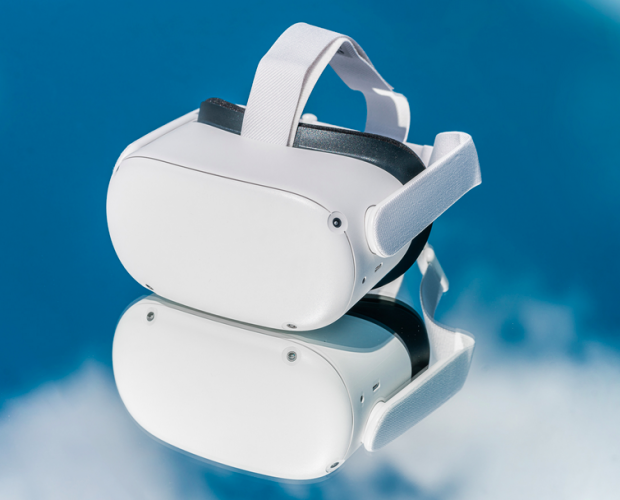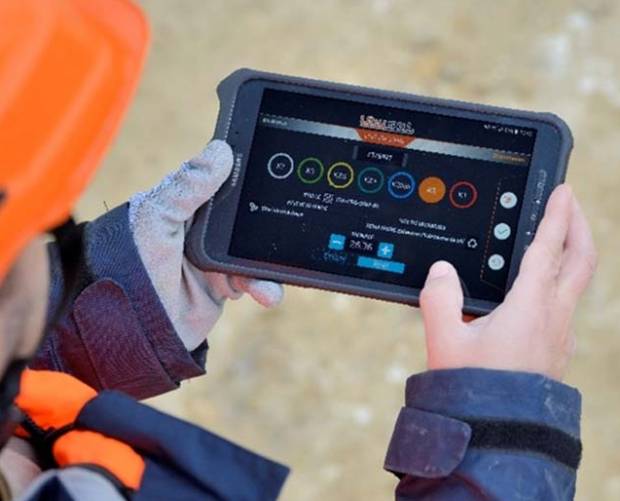If you've been to one of Dot Media's events, you'll know that our Innovation Lab hosts companies presenting cutting-edge technology that's poised to transform the market with groundbreaking ideas and solutions.
In that spirit, we've taken a step beyond the world of apps, ads and handsets with slightly bigger screens, in order to share some of the tech world's most innovative ideas. They might be interesting, disruptive or just outright strange, but these are the stories that have caught our eye over the past week.
Phorm Screen Protector Creates Tactile Keyboard from Thin Air The desire for tactile feedback while typing is one of the persistent problems that has emerged as smartphone and tablets have made the shift to touchscreen technology, and has probably helped Blackberry hang onto the thin market share it still retains. However, one startup has developed a solution that could spell the end of cumbersome peripherals or physical keyboards.
The desire for tactile feedback while typing is one of the persistent problems that has emerged as smartphone and tablets have made the shift to touchscreen technology, and has probably helped Blackberry hang onto the thin market share it still retains. However, one startup has developed a solution that could spell the end of cumbersome peripherals or physical keyboards.
The Phorm case by Tactus uses a microfluidic panel integrated into the design that channels liquid to specific areas of the screen, expanding the top layer and creating bumps and protrusions where there was previously a flat screen.
The technology can be turned on and off with a large switch on the back of the case, enabling users to interact with a smooth surface for general app interaction, then activate the keyboard when composing an email, tweet or text document. The bumps serve more as finger guides than actual buttons, but mean that those who miss the feel of a physical keyboard can achieve the sensation on a modern tablet.
So far, the Phorm has been produced for the iPad Mini, but Tactus is already hard at work on variants for the iPhone 6 Plus and iPad Air, and has produced a prototype for an Android tablet that incorporates the technology right into the device's screen.
 Keep Out Drones with NoFlyZone
Keep Out Drones with NoFlyZone
As the sight of drones floating through the sky becomes increasingly common, so are concerns about privacy, security and what exactly you're meant to do if one comes crashing down in your back garden.
NoFlyZone hopes to offer some respite for those who have become tired of quadcopters floating around their property, letting you register a no-fly zone around your home that will be recognised by a number of drone hardware and software manufacturers.
Among those who have agreed to honour NoFlyZone's boundaries are Horizon Hobby, DroneDeploy, EHANG, PixiePath, RCFlyMaps and YUNEEC. While the biggest players in the consumer drone business such as DJI and 3D Robotics are yet to sign up, one can only imagine that as drones become more prevalent, the companies behind them will want to gain some good publicity by enabling the public to avoid cameras hovering outside their windows.
 Meowlingual Translator Claims it Can Help You Speak Cat
Meowlingual Translator Claims it Can Help You Speak Cat
It probably sounds like something too good to be true for the legion of cat owners who have exasperatedly asked "What do you want?" of their feline companion, but the Meowlingual Translator can supposedly figure out exactly what your cat is thinking.
According to the manufacturers, the device can analyse your furry friend's expression to interpret six different modes, as well as translating around 200 distinct sounds made by your cat.
The device can even interpret 21 different emotions based on your cat's gestures and behaviour, and offers 85 types of health checks to ensure your cat is in tip top shape.
 Google Brings the Smart Wearable Approach to Armpits
Google Brings the Smart Wearable Approach to Armpits
If you made a list of wearable devices you expected Google to be working on, a smart deodorant would probably not be anywhere on it, but according to documents filed with the US Patent and Trademark Office, the search giant is hard at work on just that.
The 'fragrance emission device' supposedly fits under your clothes close to odour-emitting areas and utilises a variety of sensors to detect both activity and sweat. Once the level of smell it detects is deemed to be too high, it triggers a blast of fragrance to keep you smelling of roses.
The device incorporates a fan to ensure that its perfume is well-distributed and even connects to your smartphone to warn you if any contacts are nearby while your in need of a shower, enabling you to avoid friends until you've freshened up.
[caption id="attachment_51747" align="alignleft" width="300"] One of the RFID chips used next to a grain of rice[/caption]
One of the RFID chips used next to a grain of rice[/caption]
Swedish Office Implants RFID Chips Under Staff's Skin
Many offices are now using RFID cards to open doors, activate equipment and more, but in the hi-tech Epicenter block in Stockholm, they've gone one step further by installing RFID chips under the skin of workers so they can gain access with a wave of their hand.
The chips, around the size of a grain of rice, were installed in staff who volunteered for the process by members of the Swedish bio-hacking group BioNyfiken, a non-profit group of 'biohackers, DIY-biologists, body-hackers, grinders and quantified self-enthusiasts". Once in place, they enabled workers to open locked doors and activate photocopiers simply by holding their hand close to devices.
While installing a chip just to speed up your photocopying may seem extreme to most people, the growth in wearable technology suggests we're not that far from multi-purpose implanted chips gaining a real following.







